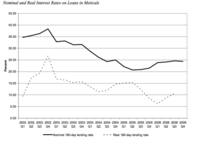Financial Sector in Mozambique
Mobilizing Access to Finance
The principal function of a financial system is to mobilize savings and allocate funds efficiently to businesses, households, and governments. The market for finance is unique in that the transactions involve an exchange between a payment today and a pledge to repay later. As a market in promises, the financial system relies heavily on information about the reliability and solvency of the party promising repayment. In addition, strong legal and judicial foundations are needed to ensure contract enforcement and property rights, and establish the rules and regulations governing financial institutions.
Commercial banks dominate the financial landscape in Mozambique. As intermediaries, banks have a fundamental obligation to protect the funds obtained from depositors. They must therefore manage risks carefully and avoid undue exposure to possible losses, while seeking an attractive return for shareholders. A sound banking system is vital to the economy as a whole, because economic agents across the board depend on banks to facilitate transactions, protect cash balances, and finance operations. In addition to prudent management and strong corporate governance, a sound banking system also needs effective supervision and judicious regulations as a second line of defense against instability.
Yet banks can be both sound and innovative. In particular, they can do a much better job of developing new financial services and serving nontraditional clients. To facilitate innovation, the government and the donor community can be instrumental as catalysts for change. The motivation for intervention stems from market imperfections that cause financial institutions to underinvest in innovations that can benefit economic development. The market imperfections involve information gaps on both sides of the market. Most banks lack information on appropriate techniques for serving new markets profitably, while small and medium-sized businesses often do not understand the requirements of the lender and lack the capacity to provide necessary accounting data and business plans. Carefully crafted interventions can help financial institutions test new markets and services and help local businesses become more “bankable” through better management and financial controls.
The objective of this assignment was:
1. To review major problems with the financial system, from the point of view of the business community, with special attention to Avisos 2/2006 and 5/2005 and other aspects of foreign exchange control and banking supervision that may have significant effects on financing for the private sector;
2. To offer recommendations to the Confederation of Mozambican Business Associations (CTA), the Government, and the Bank of Mozambique, so that they can work together to overcome financial sector problems that adversely affect trade, investment, and private sector development.
The ultimate goal is to promote sustainable growth, job creation, and poverty reduction through financial sector reforms to support private sector development, while fostering a sound and efficient financial system, ensuring financial integrity, and maintaining macroeconomic stability.
Below you will find the final report, the executive summary (in both English and Portuguese), as well as the presentation (notes & agenda) of the study’s preliminary findings.
The creation of a network of banking agents is one way of extending financial services into rural areas. Below is an English translation of the draft regulation which would enable this to happen. Your comments are welcome.

